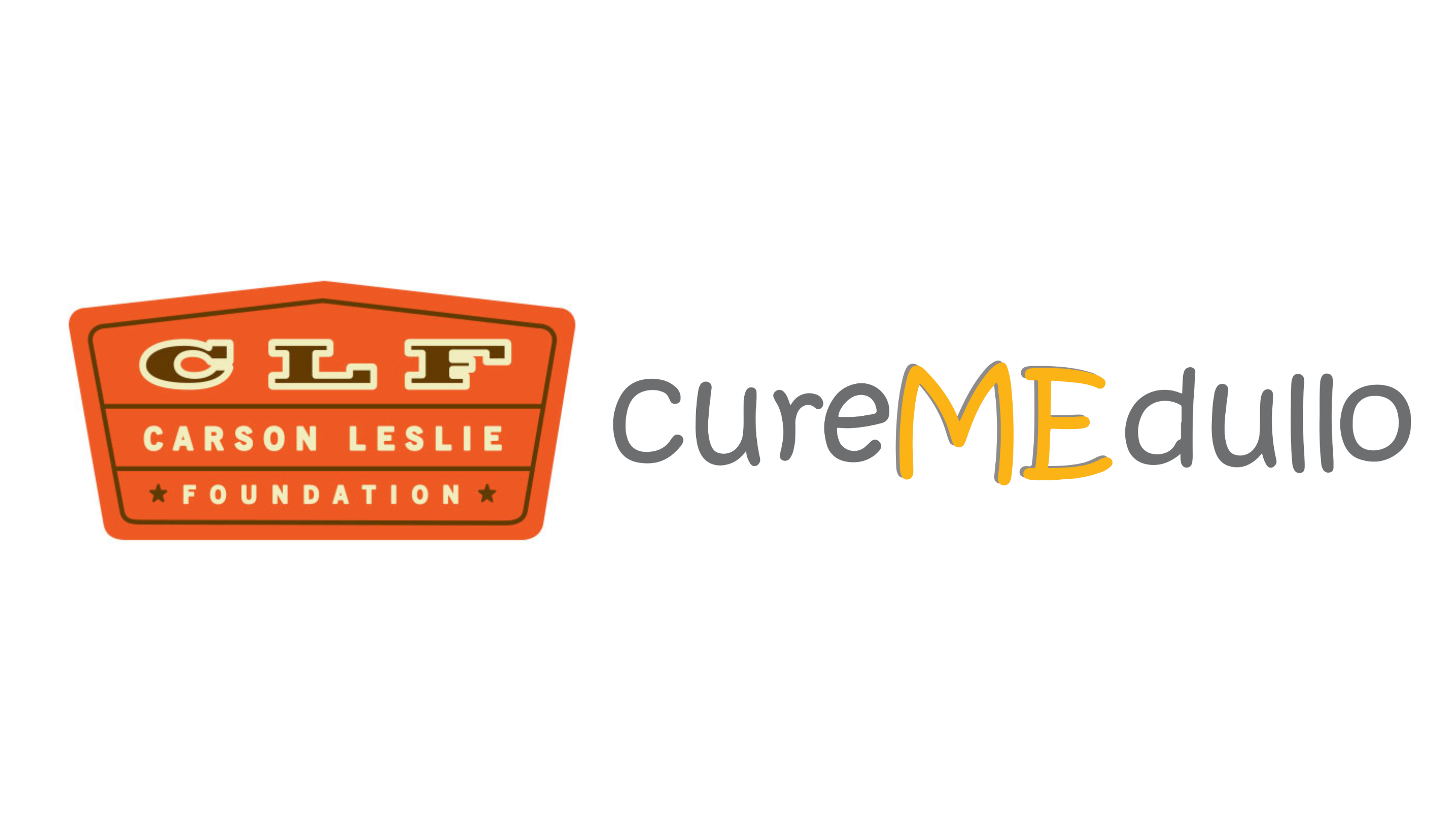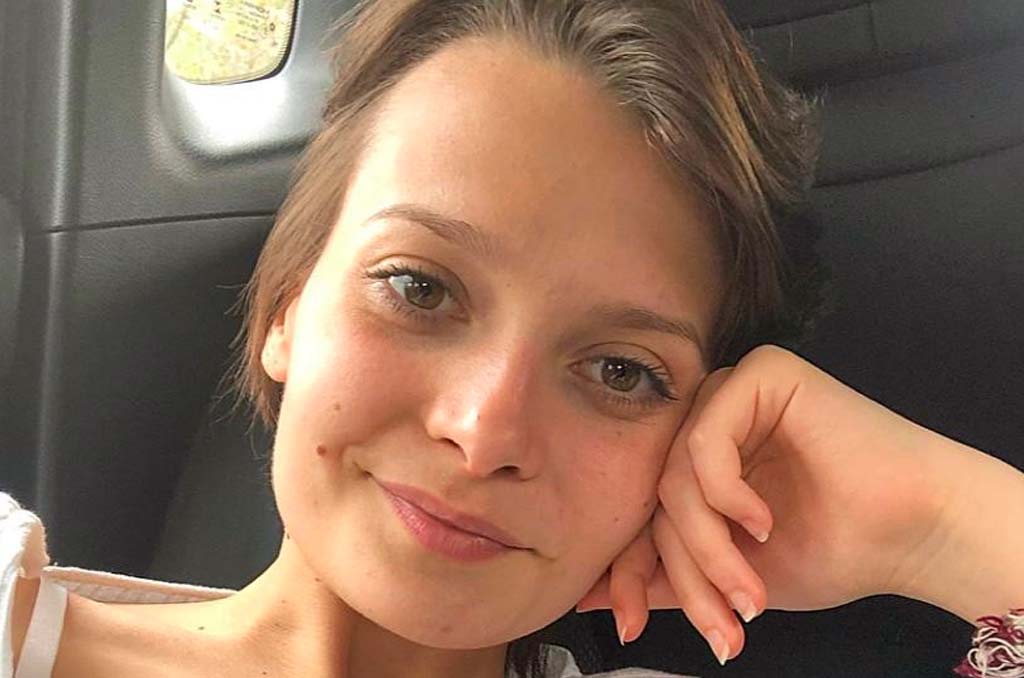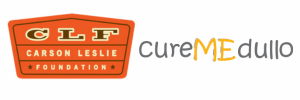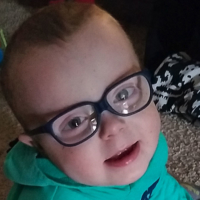The first memory of my life is the day my parents told my brother and me that another little sister was coming. Eight years younger than me, I remember every stage of her growth: the first steps, the first words, and the first teeth. I saw her become a little woman, year after year: school, studying together, her first outings, taking her around in the car when she didn’t have the driving license yet, the first boyfriends and the first inevitable cries for love. Shopping together, singing and dancing in the kitchen, arguing, doing makeup together in the bathroom. She was there in everything: like the sun that rises every morning and lights up the day, without you even noticing it because it is obvious that it is there, and will be there, the next day and the day after too.
We had recently returned from New York, the vacation that I will always remember as the most beautiful of our lives. Alessandra would soon turn eighteen. She had had neck pain for a few weeks, but the doctor had thought it was a contracture during volleyball training. But the days passed, and the pain didn’t stop, dizziness and loss of balance were added. After some new exams, on March 8, 2017—a week after my sister’s eighteenth birthday—we received the news that changed our lives forever: Alessandra had a mass in the brain.
I can’t explain in words what it feels like at certain moments. In an instant, you realize that the sun, that same sun that rises every morning and lights up the day without you noticing because it is obvious that it is there, can suddenly risk turning off. They were days and nights of confusion, tears, fear, and calls with doctors (I did not yet know that we would have lived many, too many days and nights like these), which ended with what was good news: the mass (which at that time I still hoped might not be a tumor) was in an operable position.
It seemed like the best news in the world. At that moment, I learned how your whole life can truly be hanging by a thread—how every other concern can vanish and lose any importance when someone you truly love has to face something like this. Alessandra found out everything when they confirmed that she could be operated on; she was shaken, but at that moment, she showed for the first time that strength, determination, tenacity, and maturity that so surprised me in the years to come.
On Friday, March 17, Alessandra underwent the operation. In Italy, Friday the 17th is a day that traditionally brings bad luck, but my sister saw it as a positive sign because that number had always brought beautiful things to her. The operation lasted eight, interminable hours, and we lived in fear that any of the things that the team of surgeons had warned us about could happen: that Alessandra could never wake up, be paralyzed, go blind, or have irreversible brain damage. But the operation went well: the 17th, it really brought us luck.
Alessandra came out of the operating room on the couch, very tired, still a little asleep from anesthesia, with her head all bandaged and a long scar along the back of the head and neck. “Mom, do I have crooked eyes?” she asked, because of all the things the doctors had said, she was most concerned about the possibility of having crooked eyes. My parents burst into tears that had something liberating and something desperate at the same time. Their little girl was alive, talking, reasoning, moving, and seeing with her usual beautiful green (and straight) eyes.
From that moment, our life with hospitals began. When a child or teenager gets sick, the whole family does too. The disease decides and marks the rhythms, the days, the plans, the mood, the life of all family members. There is nothing else. A piece of positive news, even a small one, makes everyone euphoric, hopeful, and positive. Bad news demeans, crushes, and buries the patient, the parents, and the siblings. There is no other way.
Alessandra stayed in the hospital for a few days, but she had a very quick recovery that surprised even the doctors. Two days after the operation, she was able to walk on her own, and after less than two weeks, she returned to school. Then came the diagnosis: “I’m sorry, Alessandra has a medulloblastoma.” My sister had a very aggressive cerebellum cancer. It was a pediatric cancer and, as she was 18, it was a rare case. Shortly thereafter, she would have more than 30 cycles of craniospinal radiotherapy and then chemotherapy.
There was a lot of news to understand, digest, and metabolize. I had just landed in a world I didn’t know except by hearsay. I didn’t even know what radiotherapy was. Until then, all tumors were the same and chemotherapy was used for all, always one and always the same. A new world had just opened up to me, which on the one hand scared me a lot, but on the other, it gave me hope. The path that awaited us was long and painful, but it was a path.
In the blink of an eye, Alessandra became a woman. She had gone from being my little sister—funny, sweet, and lazy with school—to being the bravest and most mature person I had ever known. Radiation therapy began, and vomiting, mood swings, back pain, headaches, nausea with it. Her beautiful, long, and beloved blonde hair began to fall out. To avoid seeing them falling, she wanted to cut them. I still remember her big eyes and the tears held back as she watched her hair being cut strand by strand. She didn’t want to cry: with her proud look, she repeated to herself that she had a very serious and very aggressive tumor, her hair would grow back, and we had just bought a wig made especially for her with real hair identical to hers. She didn’t have to cry, she was convinced. But for a girl of eighteen, beautiful, courted, in the middle of her life, hair is important. Seeing yourself bald is seeing yourself sick. It was seeing herself as different, not only from others, but also from what she had always been: the usual Alessandra who always wanted to have fun, go out with her friends, sing, play volleyball, travel and go to the cinema with her boyfriend. Instead, the summer and the months that followed were made up of hospitalizations, radio sessions, chemotherapy, and hair shaved by her boyfriend.
Those were long and difficult months, but even in such a moment a spark of beauty continued to shine: we were united in facing this avalanche that had hit us. It was the five of us, ready to give all of ourselves to ensure that Ale could heal. And the good news arrived: the first MRI after a year of therapy showed no signs of illness. The tumor was gone!
It had been tough, but we made it. Ale was fine: she went to school, resumed playing sports, started a careful diet that doctors had recommended to us, and even stopped wearing a wig. A few months later, she told me that 2017 had been a difficult year for her but not a bad one because she felt loved so much. I will never forget that. I was so proud of her, we all were. In such situations, one can feel powerless. In those months, I had spent days looking at the needles in my sister’s skin, the bruises, the dark circles, the transfusions, and the chemotherapy bags being emptied drop by drop. Despite the effort and dedication, the whole family may put into it, the result is never certain: will the therapies be taking effect? Will the tumor still be inside her? These questions wear you down and they simply cannot be answered until the doctor calls you to report the results of the MRI. But if there was one small thing, which is not that small, in which we actually had a little power: it was to make my sister feel loved and supported. And we did it.
Months went by. Alessandra graduated from high school on a July afternoon, beautiful as the sun with short hair, and wearing a flowered dress. She discussed a thesis on cancer that she wrote with the help of our brother and me. She was delighted with her final grade: she had finished high school with a well-deserved 70. I used to tell her, every time she felt down: Alessandra, do you realize what person you are? What have you done? At 18, you faced something that most people will never face in a lifetime, managing to graduate without losing a year. Do you realize the strength and value you have? Wiping her tears, she nodded and hugged me. I never got tired of telling her what an example she was to me. I was eight years older, but I could only learn from her, and she had to know and be aware of how special and unique she was. She could go through everything in her life, and she truly deserved to conquer the whole world.
2018 was a happy year. Every three months there was a new MRI to keep us in suspense, but every time it ended with a “there is nothing!” shouted happily by my beautiful little sister.
Until December 2018.
A few weeks before Christmas, the fear that had never left us came true. With a call, the doctor decreed: “the tumor is back.” A straight, hard punch in the stomach. I started shaking and punching the world. That damned tumor had returned to haunt my sister’s body and eat her from the inside. If possible, this second time was even worse than the first: suddenly, we were brought back to the bottom of a well from which we had painfully come out. We had to fight back that frightening monster, this time with more fear, already tired, and with fewer resources. Ale discovered it the next day, and once again she gave proof of her infinite sweetness and her infinite love: she was worried about us, she told us not to worry. She would have done what there was to do this time too, step by step. Sometimes, being positive was really difficult. The words of courage I said to her were probably addressed to me too. But we had learned to deal with everything, day after day. Every story is different, each patient is a case itself. We had to put together all the courage and all the strength of this world and fight together with Alessandra, once again.
It was a difficult year, more than the first time. Cyber-knife, chemotherapy, and resonances. Metastases that went away in one area created space for others that formed elsewhere. And again, cyber-knife, radiotherapy, resonance, rachicentesis. And despite what was happening, Ale managed to get her driving license and attend a university exam. It was the art history course of Fashion Design, and I still remember my sister’s proud face when she said to me, “Lella, can you believe I scored 29/30?”
Alessandra was tired, tired, tired. And I felt exhausted, physically and psychologically. Furthermore, if I was so sick, how was she feeling? My brother, my parents, and I were devastated. Our existence depended on my sister’s health. And if we felt that way, what could Ale feel? Despite all the love, all the support, and all the help, it was her body that was struggling. It was her life that was at stake. Thinking about how she might feel made me feel a hollow stomach pain in my chest. At her age, I was on Erasmus in Spain, while she was going in and out of hospitals fighting for her life. My most serious problems were my university exams and quarrels with my boyfriend: her’s was simply surviving. I would have done anything to take her place, to be on the bed with the drips attached to the veins instead of her, but I couldn’t. I couldn’t do anything, and that impotence once again crushed me.
We clung to the doctor’s words with all the possible strength and hope. In all of that darkness called tumor, the doctor who knows more than you and is doing everything to save the most important person in your life, almost becomes a deity. And hearing right from the mouth of this divinity that he no longer knows what to do, is like receiving a straight stab in the chest.
Then, in November 2019, our endless and daily prayers seem to have been heard. The latest resonance shows no trace of the tumor. Between tears and with hearts freed from that immense weight (even if never completely, because fear never leaves you), it was Christmas, and we had the most important reason of all to toast to. The night of December 24th, Alessandra and I stayed up until 6 in the morning chatting. We didn’t know it then, but this would be our last Christmas together. I will never forget that night.
In February, we went to Rome for a weekend. We walked 15 km a day, ate typical dishes, and visited all the churches and works of art that Ale had studied and that she proudly explained to us. But that euphoria, once again, was cut short once we returned to Milan. A new resonance, a few days after her 21st birthday, showed two new small lesions, this time in the head.
My sister was angry. She wasn’t sad, she wasn’t tired, she wasn’t disappointed, she wasn’t worried: she was just angry. Very, very, very angry. And she was right: there was no single reason in the world that could justify what was happening to a girl who had always faced everything without complaining, without betraying fear, without making the pain weigh on others. In the hospital, when people much older than her arrived to start cycles of chemo or radiotherapy, she would try to cheer them up, “you’ll see, little by little, the nausea also passes.” She had been an example of courage, determination, strength, selflessness, and faith to everyone. And how had it all been repaid? With two other metastases in the head.
She underwent again laser surgery which had worked on her a year earlier. But shortly thereafter, with a speed that did not give us time to realize what was happening, everything fell apart. She felt dizzy more and more often. There were more and more episodes of loss of balance, and it became difficult for her to walk. A further resonance showed the disease had spread over the head and back. There was nothing more to do.
Pain therapy would begin palliative chemotherapy and morphine as needed to control the pain. I felt drunk. I couldn’t believe what was happening. My brother and parents explained what was happening to Alessandra, who seemed to immediately apprehend what she was told. It didn’t seem possible to me what I was experiencing: not to my family, not to my sister. Alessandra was the sun that rises every day and lights up the day without you even noticing, because it is obvious that she is there. She could not be dying. I couldn’t even pronounce the words “death” and “die.” Even today, in saying and writing them, it seems to me that they do not really belong to our story.
My brother and I contacted any hospital anywhere in the world looking for new therapies, innovative treatments, experimental protocols. We reached out to every hospital. Despite the coronavirus, we were ready to do anything, anywhere in the world. But each day was a little worse. Little by little Alessandra was no longer able to walk independently. She vomited several times a day and could not even take medicine. She had a back pain that did not go away, even with high doses of morphine. I had never seen her like this. She suffered. She suffered so much.
She tried to keep her unique and engaging sense of humor, but each day the situation was more troubling. We changed hospitals: another oncologist in Milan had offered us an alternative treatment option, reminding us, however, that a relapse of medulloblastoma cannot be cured. They told us very clearly what we should expect, but we wanted Alessandra to feel better, and as probably always happens in these situations, everyone hopes and thinks that their maybe their case will be different. That there are many children and many young people who do not make it, but Alessandra is Alessandra, and she will make it. It was a thought without any foundation except that of love, fear, and blind hope, and I repeated it to myself like a mantra every day at any time.
Things improved, but if the back pain subsided, the vomiting continued. One day, Alessandra almost fainted. We rushed her to the hospital, where she was operated on for hydrocephalus. A tube was inserted into her head that drained into the stomach the excess fluids that were causing these disturbances.
The hardest months ever followed. Alessandra could only move with the help of a wheelchair. She had to be helped to go to the bathroom, to take a shower, and after a while, also to eat. She never lost her unmistakable sense of humor. She laughed and joked, and we with her, but the smiles couldn’t hide our desperation. She used to take more than ten pills a day. Our days were marked by medicines and our weeks by the meetings with doctors, psychologists, physiotherapists, nurses, and hospital visits. There was nothing else and the lockdown imposed by COVID-19 helped to create this nest of protection and dedication for my sister’s growing needs. For me, it was an honor to help her when she needed it most. I didn’t want to do anything else. But seeing my beautiful 21-year-old sister no longer recognize her body and having to ask for help to do what was part of her daily life a few months ago is the greatest pain I’ve ever experienced. Alessandra never lost her sense of humor and dignity, just as she never stopped showing the pure and unconditional love she felt for us.
On the morning of August 10th, after having chatted with difficulty with my mother, she told me to cover her because she was feeling cold. It was the last time I heard her voice. A few minutes later, she fell into a strange sleep that alarmed us so much, we called an ambulance. Alessandra had gone into a coma, and her journey was unequivocally coming to an end.
The five of us spent 5 days in the hospital, 24 hours a day. Ale was asleep, attached to machines that ensured that her passage was peaceful and painless. The doctors could not explain what exactly had happened, the disease had probably affected parts of the brain that managed vital functions. These were intense, infinite, surreal, sad, desperate days, but also very intimate, in which we talked a lot to Ale. We remembered things, we made promises, we sang for her and listened with her the songs that had characterized those 21 years together. Her hand was never released, one of us was always holding and caressing it.
On August 15th, in the sweetest and lightest way in the world, Alessandra flew away. It was the day of Mary’s Assumption, and my parents saw it as a sign. It was over. Ale was no longer physically with us. I remember every moment, every smell, every sensation. Her beautiful face, the suspended breath, not feeling anything. The last years had been so painful and exhausting, that at that moment, the thought that she was no longer suffering relieved me. It is a thought that I still have today, even if now it hardly manages to contain the sadness and the sense of injustice. As soon as it happened, I was really comforted by the fact that her pain was over, and that she can now continue free and serene wherever she is.
Today, I have to force myself to remember this thought, because her absence is so heavy that sometimes I feel unable to breathe, and I cannot find meaning in what happened or in what I am and will be. But every morning, some days with more difficulty than others, I repeat to myself that all the suffering, pain, courage, strength, and unconditional love of my sister cannot be in vain. That it must serve something. And that it must help me avoid the risk of living a selfish life, now that, thanks to her, I have discovered what the true essence of life is, knowing the deepest pain, but also the deepest love. The day will come when no child, no boy, no girl, and no family will have to live what we have lived, and this will be possible also thanks to you, my beloved Alessandra.



